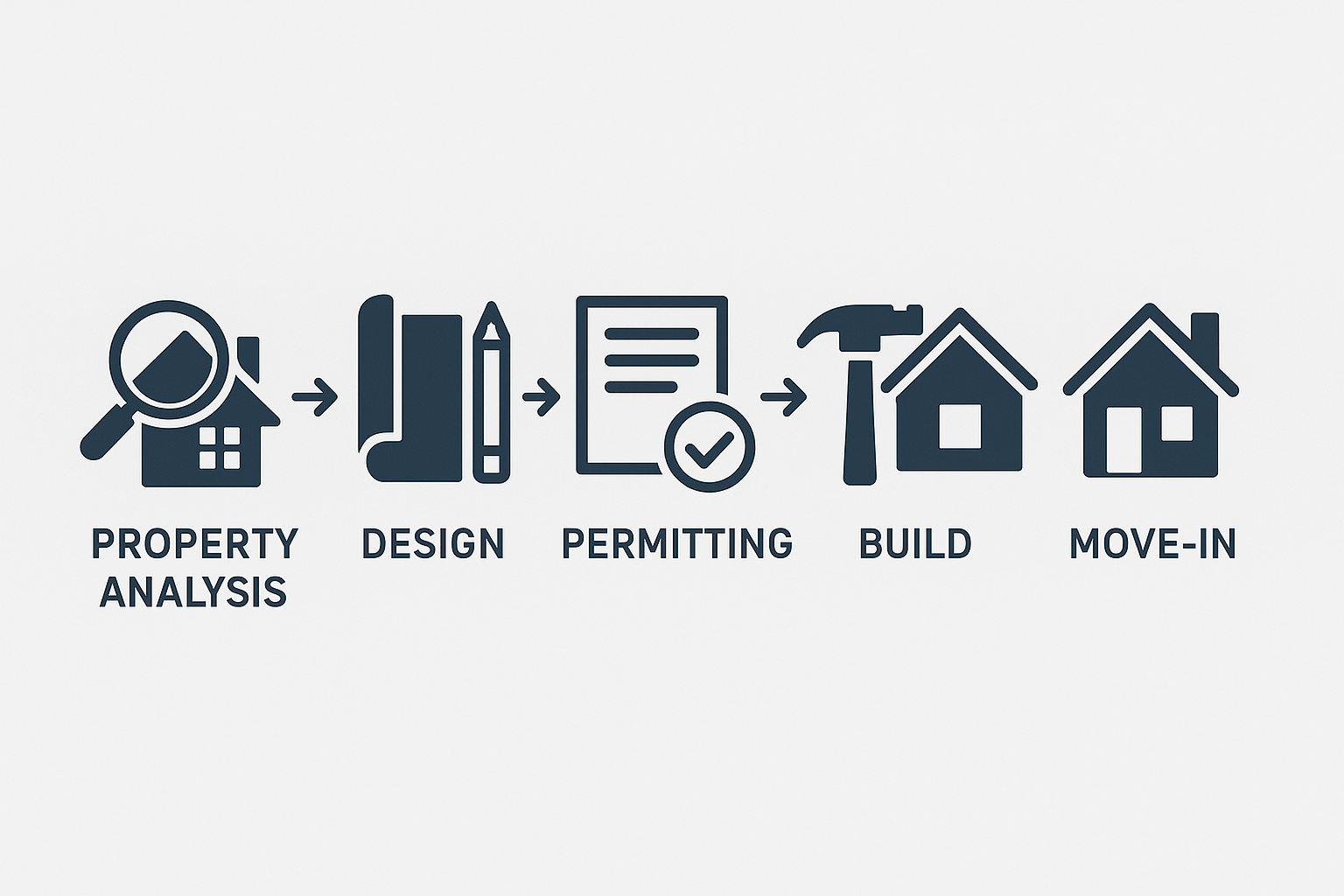Have you ever wondered how experienced real estate moguls navigate the complexities of managing multiple income-producing properties? If you’re dreaming of expanding your real estate portfolio and swimming with the big fish, you’re in luck.
This real estate management guide will take you from dipping your toes in the water to diving headfirst into the real estate deep end, helping you sidestep potential pitfalls and come up for air as a seasoned pro. Let’s begin!
The Big Picture: Planning Ahead
Embarking on the path of managing multiple income-producing properties is akin to playing a game of chess. Each move should be deliberate, reflecting foresight and strategy.
Start with a clear vision of your financial landscape, both present and future. What are your income goals, risk tolerance, and retirement objectives? How do income-producing properties fit into this financial jigsaw puzzle?
Consider potential market fluctuations and ensure your portfolio can withstand these storms. Are your properties located in growth markets or areas facing economic stagnation? Do they cater to the needs of the local demographic?
For example, a property in a university town may be best suited for student rentals, while a property in a bustling business district might be better used for commercial purposes.
Keep in mind that real estate investment isn’t merely a financial transaction; it’s an operational endeavor. Each property comes with its responsibilities: regular maintenance, tenant relationships, rent collection, and legal compliance, among other things. Learn how to manage these operational aspects efficiently as your portfolio grows.
Building a Reliable Team

As a real estate investor, you’re as strong as your weakest link. The art of managing multiple properties requires an ensemble of professionals working in harmony toward your goals. A property manager is instrumental in overseeing day-to-day operations, mitigating issues before they become problems, and ensuring a steady income stream.
Experienced real estate agents provide insight into market trends and opportunities, while skilled general contractors handle renovations and repairs that are bound to arise. Work with a competent real estate attorney who understands real estate laws in your area and an accountant who can help you get a good grasp of real estate tax laws and financial planning.
Team building goes beyond hiring professionals. It’s about nurturing relationships based on trust, mutual respect, and clear communication. A strong team will multiply your capabilities, enabling you to expand your portfolio confidently and efficiently.
Efficient Systems and Processes
Managing multiple income-producing properties without established systems is like attempting to sail a boat without a rudder. Consistency, efficiency, and reliability are the bedrock of any successful operation.
From tenant screening and lease agreements to rent collection and maintenance requests, every aspect of real estate management can and should be systematized. For instance, a standardized tenant screening process can help ensure you rent to reliable tenants who pay on time and respect your property.
Create a protocol for regular property inspections and upkeep to avoid expensive repairs down the line. Use technology to streamline rent collection and communication with tenants. Set up a systematic accounting process to keep track of your income and expenses.
Efficient systems provide a stable foundation on which you can expand your real estate portfolio. They also free up your time, allowing you to focus on strategic decisions rather than getting bogged down by daily operations.
Diversification: Spreading Your Wings

In real estate, as in other investments, diversification is the spice of life. Owning properties of different types and in different regions helps spread risk and create opportunities for higher returns.
Consider investing in a mix of residential, commercial, and industrial properties. Each has its own unique attributes, market cycles, and returns. Residential properties, for example, can provide a steady income stream, while commercial properties often have longer leases and lower vacancy rates.
Geographic diversification is also beneficial. Different regions may have varying economic drivers, growth rates, and real estate market dynamics. Properties in a growing city might have a higher potential for capital appreciation, while properties in mature markets could offer stability.
However, diversification is not a license to gamble. Each investment should be backed by thorough research and sound judgment. The goal is to build a resilient portfolio that can weather storms and provide consistent returns.
Using Technology to Your Advantage
In the age of digitization, technology has emerged as an indispensable tool for managing income-producing properties. It’s like a multi-tool Swiss Army knife, addressing multiple challenges simultaneously while streamlining operations.
First, let’s consider the tenant acquisition process. Technological tools can aid in advertising your property and attracting a wider pool of potential tenants. Online listing platforms and social media channels are your allies here; they’ll help you showcase your property to thousands of potential renters within and beyond your locality.
Next comes tenant screening. This is a critical phase that can significantly affect your rental income and overall property management experience. Online background check services can swiftly provide a comprehensive profile of your prospective tenants, including credit history, criminal records, and previous rental experiences.
Then there’s rent collection. This process can be easily automated with online payment portals. These platforms not only provide a seamless transaction experience for your tenants but also give you a clear view of your income stream with instant alerts on late payments.
Property management software solutions can tie these various processes together, providing a consolidated dashboard for your entire portfolio. These solutions can track lease dates, maintenance requests, and rent payments. They can even generate financial reports for easy analysis.
Lastly, the advent of smart home technologies has enhanced how properties can be managed. Smart locks, for example, can provide remote access control, while smart sensors can alert you to potential maintenance issues like leaks or temperature anomalies.
Avoiding Common Pitfalls

The path to masterful real estate management is strewn with potential pitfalls. Awareness of these common mistakes can help you navigate this road with more confidence and fewer setbacks.
The first pitfall is neglecting due diligence. In the pursuit of expanding your portfolio, don’t overlook the importance of thorough research before acquiring a new property. Understand the local market conditions, the property’s condition, potential yield, and the demographic profile of potential tenants.
The second pitfall is underestimating costs. You’ll be dealing with a lot of expenses: maintenance expenses, vacancy costs, insurance premiums, unexpected repairs, and the like. The true cost of owning a property often surpasses the mortgage payments. An inaccurate estimation of these costs can erode your profit and disrupt your cash flow.
Thirdly, neglecting regular maintenance can pave the way for significant repair costs in the future and also diminish the appeal of your property to potential tenants. Regular inspections and prompt responses to maintenance issues will help keep your property in good shape and your tenants satisfied.
Next, poor tenant relations can increase tenant turnover, which can significantly drain your resources. Cultivate a positive landlord-tenant relationship to retain good tenants and ensure a steady income stream.
Lastly, not leveraging professional help when required can hamper your growth. Whether it’s legal advice, tax planning, or property management services, professional expertise can prove invaluable. A seasoned partner like InstaLend can provide the necessary financial solutions to help you fuel growth and manage your real estate investments efficiently.Top of FormBottom of Form
Leverage Customized Real Estate Loans
Whether you’re looking at a single-family rental property or a new construction project, InstaLend has you covered. We provide a wide range of lending products, including fix and flip loans, new construction loans, multi-family bridge loans, multi-family term loans, and single-family rental loans. Our tailored loan programs cater to every investor’s needs, irrespective of their experience level.
Managing multiple income-producing properties can be a complex task, but it doesn’t have to be daunting. By developing a comprehensive plan, building a competent team, standardizing your operations, and leveraging technology, you can navigate the challenges like a seasoned pro. And with partners like InstaLend, you can rest easy knowing that a reliable and flexible financing solution is just a call away.







